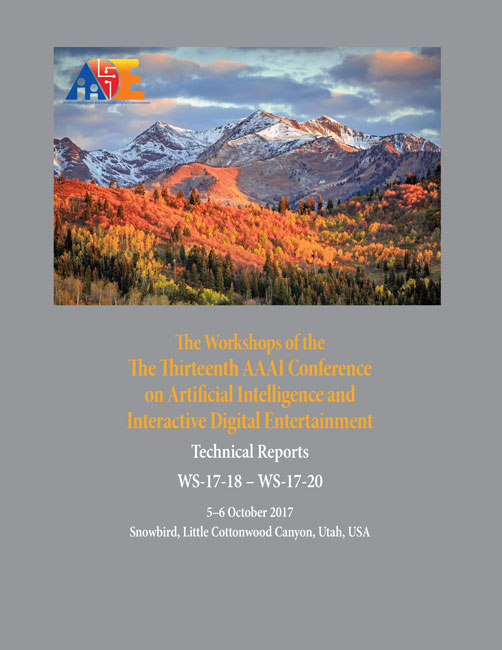Leveraging Multi-Layer Level Representations for Puzzle-Platformer Level Generation
DOI:
https://doi.org/10.1609/aiide.v13i2.12966Keywords:
Procedural Content Generation, Markov chains, Machine LearningAbstract
Procedural content generation via machine learning (PCGML) has been growing in recent years. However, many PCGML approaches are only explored in the context of linear platforming games, and focused on modeling structural level information. Previously, we developed a multi-layer level representation, where each layer is designed to capture specific level information. In this paper, we apply our multi-layer approach to Lode Runner, a game with non-linear paths and complex actions. We test our approach by generating levels for Lode Runner with a constrained multi-dimensional Markov chain (MdMC) approach that ensures playability and a standard MdMC sampling approach. We compare the levels sampled when using multi-layer representation against those sampled using the single-layer representation; we compare using both the constrained sampling algorithm and the standard sampling algorithm.

